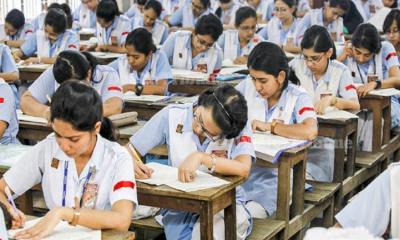South Korea has passed a bill banning the use of mobile phones and smart devices in school classrooms, a law set to take effect in March 2026.
The move aims to reduce smartphone addiction and ensure the mental and academic development of students.
On Wednesday, 115 out of 163 members of the National Assembly voted in favor of the bill, which received bipartisan support. Lawmakers, parents, and teachers argued that smartphones distract students from studies and disrupt educational activities.
The bill was introduced by MP Cho Jung-hoon of the opposition People Power Party, who cited scientific and medical evidence on the harmful effects of smartphone addiction on students’ brain development and mental health.
A 2024 government survey showed that nearly one-fourth of South Korea’s population of 51 million is excessively reliant on smartphones, with 43% of children aged 10–19 affected—a figure that continues to rise.
While students face increasing academic pressure, some parents say the devices also disrupt attention and social interactions. Choi Yun-young, mother of a 14-year-old, said, “Students go to school not just to study but also to build friendships, yet smartphones prevent them from focusing on anything.” Kim San, mother of two primary school daughters, expressed concerns about cyberbullying and inappropriate language on social media.
Under the new law, phone usage will only be banned during classroom hours, but teachers will have the authority to restrict phones throughout the school premises. Exceptions are made for students with disabilities or special needs and for emergency or educational purposes. Schools are also required to teach students proper use of digital devices.
Among South Korea’s major teacher organizations, only the conservative Korean Federation of Teachers Association officially supported the bill, citing that 70% of surveyed teachers reported classroom distractions due to smartphones. Meanwhile, the Korean Teachers and Educational Workers Union has not taken an official position, although some members expressed concerns that the measure might infringe on students’ rights.
Some educators, like teacher Cho Young-san, argue that the root problem is not phones but the highly competitive education system, particularly preparation for the Sunung college entrance exam, which plays a decisive role in students’ future jobs and life prospects.
Students themselves suggest that merely banning phones is insufficient. Eighteen-year-old Seo Min-jun said, “We also need to be taught how to spend time without phones. Until now, phones have only been taken away without proper education on usage.”
Globally, countries have taken varied approaches: Finland and France have limited bans for younger students, while Italy, the Netherlands, and China restrict phone use across all school levels. Cho Jung-hoon said the move aligns with international trends and emphasized that scientific evidence shows smartphone addiction can severely harm brain development and mental growth in students.






































